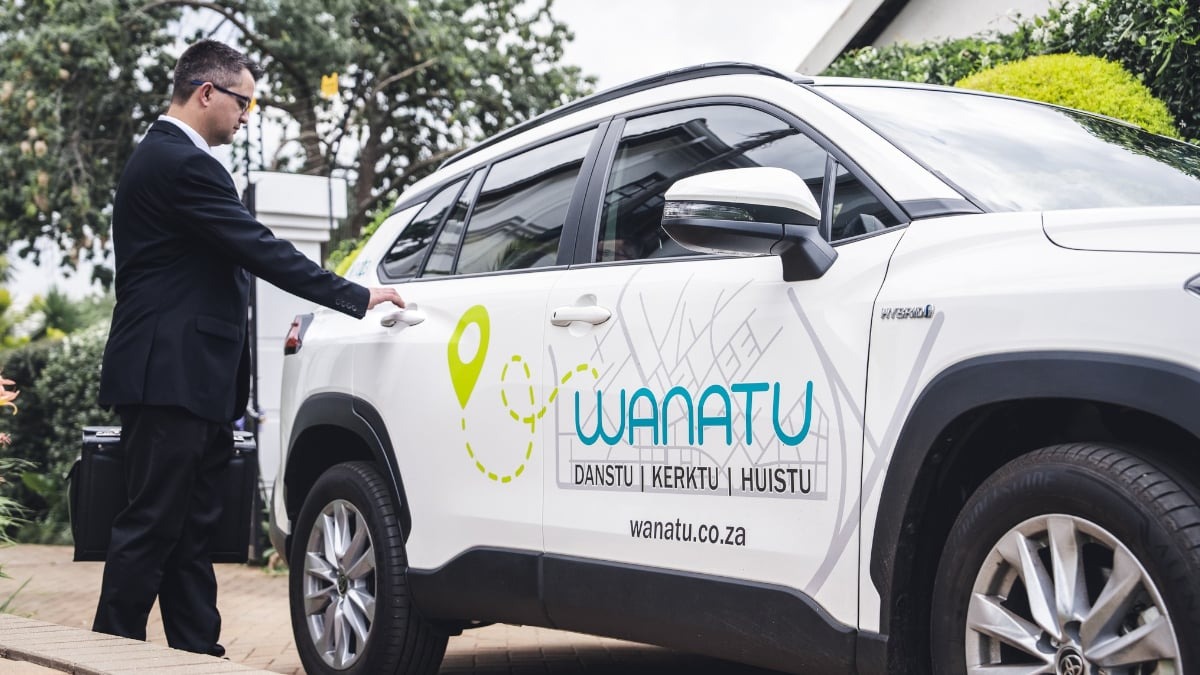
Wanatu, the Afrikaans-focused e-hailing service, is back on the road after securing a court order against the Tshwane Metro Police Department (TMPD), which had been impounding its vehicles.
The North Gauteng High Court has officially barred the TMPD from seizing e-hailing vehicles due to missing road carrier permits until the provincial government resolves a massive backlog in permit applications.
Court Ruling Stops Vehicle Seizures
The legal dispute began when TMPD impounded two Wanatu vehicles, prompting the company—along with seven other e-hailing operators—to take the matter to court. The department had proudly publicized its crackdown after Gauteng Provincial Legislature member Ayanda Allie accused it of favoring Wanatu over competitors like Uber, Bolt, and InDrive.
Drivers for these larger platforms have faced intensified enforcement measures since late 2024, despite the Gauteng Department of Roads and Transport—responsible for issuing the required permits—having stopped accepting applications due to a backlog of more than 20,000. With no way to obtain the necessary documents, many drivers had little choice but to keep working illegally or lose their livelihoods.
To prevent unnecessary hardship for its drivers and passengers, Wanatu temporarily suspended operations on February 5, vowing to challenge TMPD’s “unlawful” actions in court.
Legal Victory for Wanatu and E-Hailing Drivers
After securing the urgent interdict, Wanatu expressed gratitude to AfriForum for covering its legal fees. The case was presented by law firm Hurter Spies, which successfully argued that acquiring the required permits was currently impossible.
“This ruling is a victory for every e-hailing driver in Tshwane,” said Wanatu CEO Judith van der Walt. “The city cannot punish drivers for a bureaucratic backlog they didn’t create.”
Wanatu’s legal team is now preparing further action to pressure the Gauteng government into resolving the stalled permit processing.
With the court’s decision in hand, Wanatu resumed operations on Friday, February 21, at noon. Van der Walt expressed relief and reaffirmed the company’s commitment to compliance. “We didn’t just fight for ourselves—we fought for every e-hailing driver who stood with us,” she said.
Community Support and Crowdfunding Efforts
Van der Walt also extended her gratitude to businesses and individuals who contributed to Wanatu’s crowdfunding campaign, “Dryf Hoop” (Drive Hope). The campaign was launched on BackaBuddy to help cover drivers’ salaries during the shutdown.
Eight days into the fundraiser, 101 donors had contributed R57,267—around 5% of the R1.1 million goal needed to sustain one month’s payroll. To encourage donations, Wanatu has been sharing videos of drivers explaining how the company has impacted their lives.
A Unique Business Model
Wanatu has drawn attention not only for its Afrikaans-language focus but also for its operational model, which differs from traditional e-hailing services. Instead of contracting drivers as freelancers, Wanatu employs its drivers directly and owns the vehicles they operate.
Security is another defining feature of the service. Unlike competitors, Wanatu vehicles are equipped with multiple interior and exterior cameras streaming live to a central control room, along with panic buttons linked to private security services. This focus on safety addresses a longstanding concern among South African e-hailing drivers and passengers.
With its legal battle won and operations back in full swing, Wanatu is now setting its sights on a larger fight—to ensure that all e-hailing drivers can work legally, without being caught in bureaucratic limbo.












